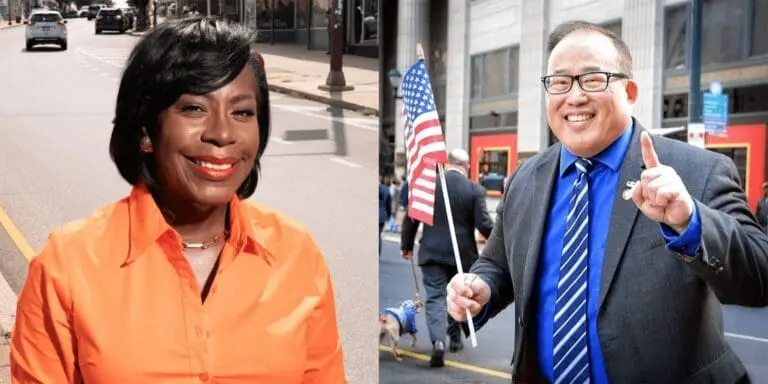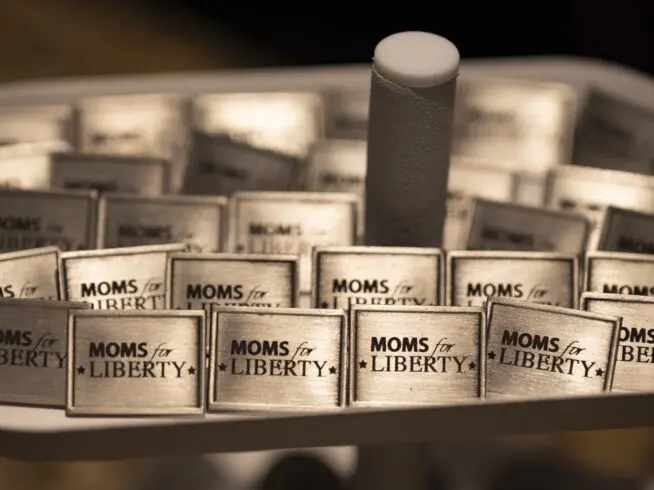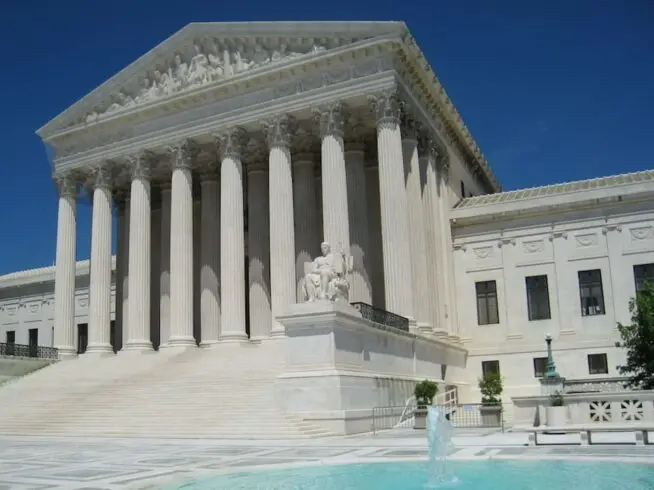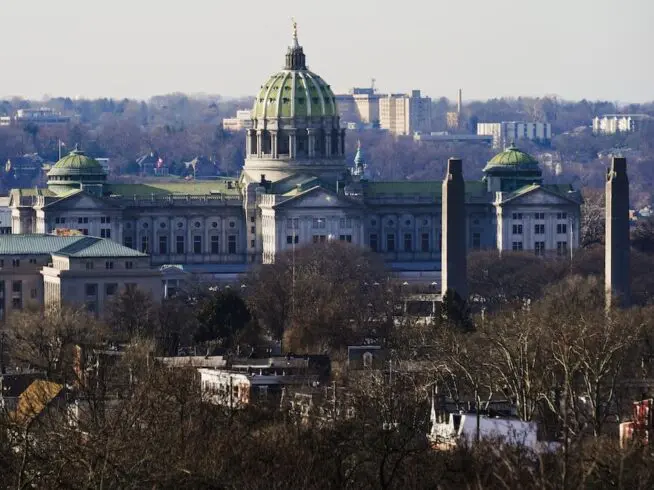Philadelphia mayoral candidates tackle policing, education and more in first debate
Democrat Cherelle Parker and Republican David Oh are vying to become the leader of Pennsylvania’s largest city.

The two candidates running to be Philadelphia’s next mayor tackled controversial policing tactics, the 76ers’ proposal to build a $1.55 billion arena near the city’s Chinatown, the prospect of year-round schooling, and more on Thursday in the first — and likely only — formal debate between Democrat Cherelle Parker and Republican David Oh.
Parker, a former City Council member and state representative, and Oh, also a former City Council member, have rarely appeared together during the race to lead the state’s largest city. The two spoke, but did not debate one another, during a town hall on Monday.
Thursday’s one-hour debate featured little sparring between the two politically moderate candidates during the event, which aired on KYW Radio and was moderated by KYW reporters Pat Loeb, Mike DeNardo and Racquel Williams.
“The last Republican to come close, if you can call it that, to toppling a Democrat in the mayor’s race was Sam Katz,” DeNardo said of the three-time mayoral candidate who narrowly lost to Democrat John Street in 1999. “He told the Inquirer that to win in Philadelphia, a Republican needs an unpalatable Democratic candidate. Is Cherelle Parker unpalatable?”
“No, no,” Oh said. “She’s a good candidate.”
Both candidates would make Philadelphia history if elected: Parker would be the first woman to be mayor, while Oh would be the first Asian American to lead the city.
Policing
The candidates kicked off the debate by delving into their positions on stop-and-frisk police tactics long criticized by civil rights groups.
Both candidates expressed concerns about the use of the controversial decades-old policing method that permits officers to pat down individuals they believe have committed a crime or are going to commit a crime to check them for items like guns and drugs. The American Civil Liberties Union has sued cities across the country, including Philadelphia, over police departments disproportionately using stop-and-frisk on Black and brown individuals.
“No matter the race, class or socioeconomic status of any audience that I’ve been in front of, I’ve affirmed that I will allow a police department under a Parker administration to employ the use of every constitutional and legal tool available to make Philadelphia’s public health and safety our number one priority — and that does include Terry stops,” Parker said, using another term for stop-and-frisk.
“It is very polarizing to say the term ‘stop-and-frisk’ because it has been disproportionately utilized to stop and profile Black men,” Parker continued, adding that, as the mother of a Black son, “I am concerned about when that tool could be misused, but I support Terry stops wholeheartedly.”
Asked how she would respond to police abuse of stop-and-frisk tactics, Parker said, “There will be zero tolerance for any misuse and/or abuse of authority in a Parker administration. You will be fired, and we will then see you in court and/or in arbitration.”
Oh was critical of stop-and-frisk.
“Real public safety comes from the cooperation of the community and the police; the community that wants to be policed, they want their rights to be protected, not violated,” Oh said. “To send a police force with instructions to go out and use stop-and-frisk, that is indicating that you want to find a reason to stop and frisk someone. … It is historically an invitation to failure because the public needs to have confidence in our police, and our police need to be the heroes that enforce everyone’s rights.”
Year-round schooling
When it comes to Philadelphia’s public schools, Parker advocated for a year-round calendar, while Oh was less in favor of an extended school year for all students.
Parker said a year-round calendar would be especially beneficial for underprivileged youth and individuals whose families have varying caregiving needs.
“I think it’s a great opportunity to figure out a way to fund, in a sustainable way, access to year-round education for the children who are not all growing up, quite frankly, in perfect familial environments, like me,” Parker said. “I was raised by my grandparents; I don’t come from a nuclear, ‘Cosby,’ you know, ‘Leave It to Beaver’ family.”
The Democratic candidate said she doesn’t have a specific vision of what a year-round schedule would look like, and she noted it would not mean students would attend school all 365 days of the year. Rather, there would be vacation periods interspersed throughout the year.
Oh, meanwhile, said he views the traditional time off for students as important.
“Some children have everything they need at home; they have a wonderful education in our schools,” Oh said. “Other children, they are really underserved and they could use more — more after school, more summer learning. But they do need time off, and their parents need time off. And our educators, our teachers are very stressed, and they need time off as well.”
“And so I don’t support year-round schooling as a mandatory thing for everyone,” Oh continued. “But I do support very much expanded learning for children who need it.”
Parker also said she did not support “mandatory” year-round schooling.
The proposed 76ers stadium in downtown Philadelphia
Philadelphia’s basketball team, the 76ers, has proposed building a stadium in the city’s downtown — a plan that’s elicited strong support and opposition in the city. At the debate, Parker said she backs the proposed stadium; Oh does not.
The $1.55 billion project has landed praise from high-profile African American groups in the city, including the African American Chamber of Commerce, that say the project will bring jobs to the Black community.
Groups representing voters in South Philadelphia and Center City oppose the development, saying it will displace Chinatown residents.
As a caveat to her support, Parker emphasized there must be community involvement as plans for the stadium are finalized. The City Council would have to greenlight the proposal before it would become a reality.
“I will want to see diversity and inclusion from top to the bottom,” Parker said. “I want to hear a community approach, but the people in every neighborhood in the city will also have an opportunity to have their voices heard. An economic development project of this magnitude has to be vetted, and people in the city have to know its impact on them as well.”
Oh said it’s not the stadium itself he is against but rather the location.
“If it’s going to move forward there, it’s certainly going to displace Chinatown,” Oh said. “Chinatown is 152 years in the making. It has gone through a lot. It is also a cultural and economic engine for our city, but if we have an arena there, it’ll probably be the end of Chinatown.”
In-person voting for the next Pennsylvania election will take place on Nov. 7, and early voting is ongoing. Check out our election guide for more information.




